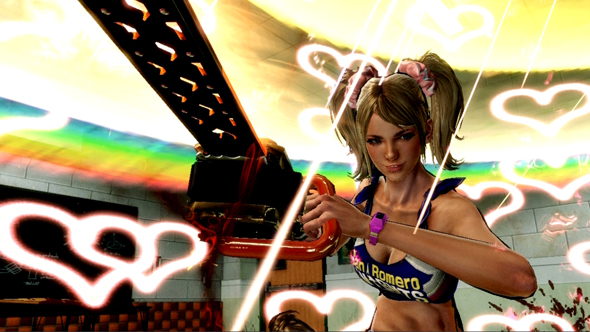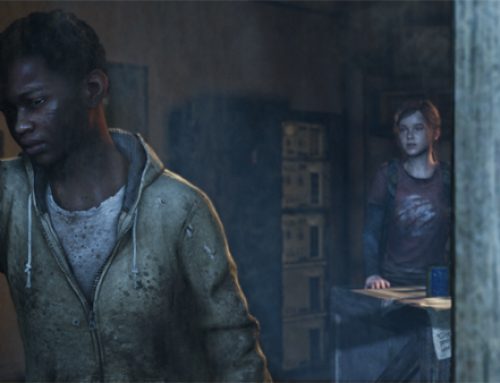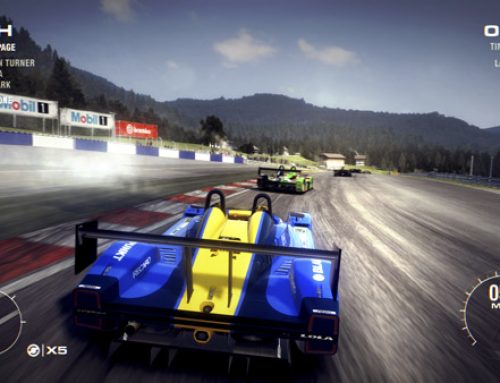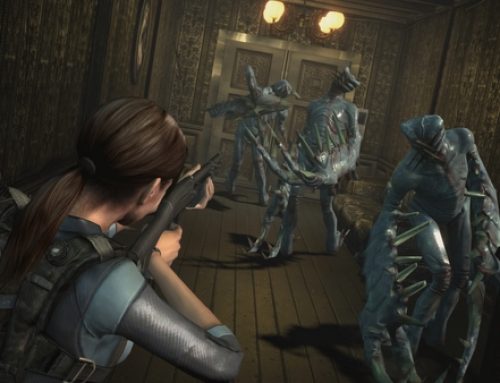Video game culture, usually deservedly, takes a lot of flak for the way it treats women. Whether it’s chauvinistic cretins talking smack online, so-called “booth babes” at trade shows or in-game cameras that ogle an otherwise strong female protagonist, gaming can feel as welcoming to women as an all-male country club.
Even though “Lollipop Chainsaw,” in which a high school cheerleader slices up zombies with a power saw, stars a character who could launch adolescent fantasies, the game portrays Juliet Starling as an assertive, independent-minded no-nonsense hero.
As it stumbles and lurches, “Lollipop Chainsaw” frequently comes close to being gaming’s equivalent of “Buffy the Vampire Slayer” — a fun, campy celebration of butt-kicking femininity that reveres rather than leers. But Juliet’s girl power is undermined by the way secondary characters relate to her. Specifically, the taunts of the enemies Juliet mows down sound like they were penned by a committee of sex offenders pumped full of coffee and locked in a closet for an all-night dialogue brainstorming session. Little of it is printable on a blog hosted by a family newspaper.
That misogyny is balanced out, if such a thing can be balanced out, by Juliet’s relationships with her quirky family of zombie hunters and her boyfriend, Nick, a talking severed head who wears a collar and attaches to Juliet’s hip by a chain.
Nick begins the game as a dreamy high school letter man, but in the prologue stage, he’s bitten by a zombie. The quick-thinking Juliet uses her chainsaw and a bit of magic to separate his head from his infected body before he turns into a shambling brain-eater.
Japanese game designer Goichi Suda, aka Suda 51, and American screenwriter James Gunn do a fantastic job turning “Lollipop Chainsaw’s” absurd setup into asset. After the bubbly Juliet mows down a gaggle of zombie cheerleaders, she quips, “That was sad killing my friends, but also sooo fun!” Running down the hallways of a high school, slicing up zombies while Sleigh Bells’ “Riot Rhythm” blared through my speakers was one of the most refined moments of gaming joy I’ve felt this year. Suda pulls off the cheerleader with a chainsaw, in the same way Robert Rodriguez stuck a gun on Rose McGowan’s leg in and made it work in “Grindhouse,” a movie Suda obviously reveres.
Gunn’s running dialogue between the upbeat Juliet and the alternately supportive and depressed Nick is another highlight. A sequence in which Nick laments his inability to choose his own course of action and rails against Juliet for treating him like a talking hood ornament drips with pathos. It’s both absurd and heartfelt.
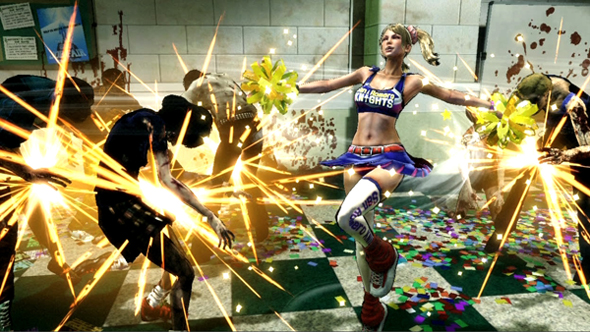
Juliet can stun zombies with her pompoms before moving in for the kill, but the action is never as fluid as what you'll find in games like "Bayonetta" or "Ninja Gaiden Sigma."
“Lollipop Chainsaw’s” gameplay is as uneven as its dialogue. For starters, it’s what’s known as a score-attack game. Like “Bulletstorm,” it can be beaten in five or six hours, and it’s meant to be replayed for the sake of improving your score. (Score-attack games tend to anger a certain subset of gamers, who demand all $60 games provide an arbitrary number of hours’ worth of entertainment.)
Strangely, the first playthrough is probably the least fun. “Normal” difficulty is too easy, and your first several hours playing the game are an exercise in earning medals to upgrade Juliet and unlock deady combo attacks. With such a limited arsenal, stringing together moves the way you would in a polished, butter-smooth action game like “Ninja Gaiden Sigma” or “Bayonetta” is impossible.
Additionally, the seven levels in “Lollipop Chainsaw” range from horrible to decent. A chapter set on a farm, in particular, is drab and forgettable, save for two brief portions where you drive a combine through a wheat field full of zombies while Dead or Alive’s “You Spin Me Round (Like a Record)” plays.
The sometimes janky action means “Lollipop Chainsaw” is best suited to fans of score-attack games, camp and oddball writing. For a certain subset of gamer, which admittedly includes me, the game is a must-play title despite its flaws. But even its fans will find themselves wishing for the polished, empowering action game that might have been.
“Lollipop Chainsaw” is rated M and costs $60 on the Xbox 360 or PlayStation 3. For this review, I played an Xbox 360 version of the game provided by the publisher.
Follow Eric on Twitter or join the “GameWit blog” group on Facebook.

